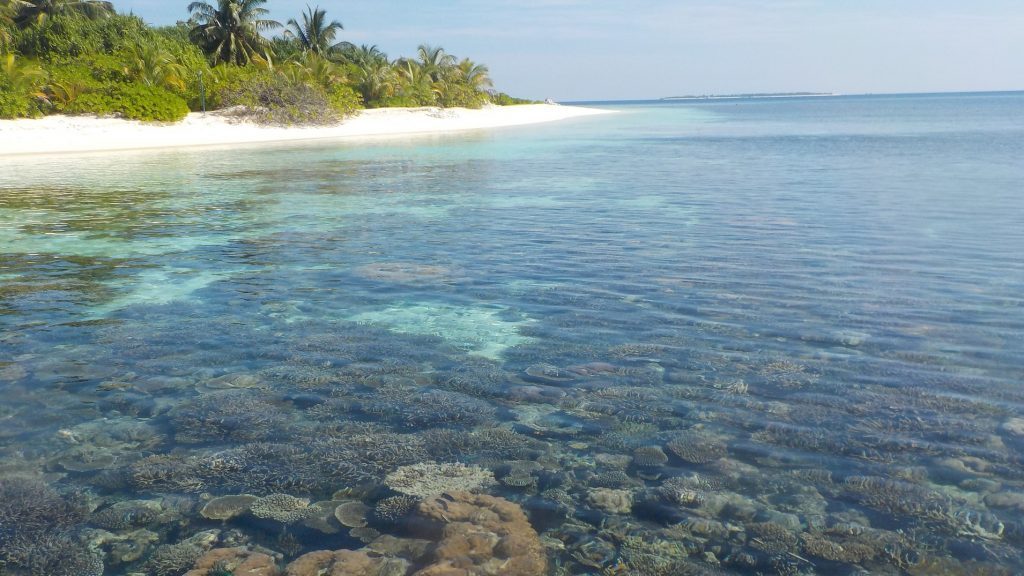
Imagining environmental research in the Maldives
The coastal island setting of the Maldives, is often described in alluring and poetic terms.
For me it is where I call home and one I believe to be a very unique environment. Although now I live in the concrete city of Male’, with little time to see the beautiful beaches and swim in the sea, I am lucky to have beautiful childhood memories of fun times at the beaches and islands. Add to this fascinating documentaries of Jacques Cousteau and his explorations of the sea in the Calypso. Perhaps it’s no surprise that I studied to become a physical geographer studying about the oceans. I was always very focused on working towards conservation of our beautiful ecosystem.
As I began applying my knowledge of environmental management in the Maldives, I was confronted time and time again with situations that made me realise conservation of the environment is not about the natural environment alone.
All the environmental issues we have to address are deeply rooted within individuals, communities and societies. I’ve seen the importance of studying human-nature interactions. I had to understand people. How do people interact with the natural environment? How do people perceive and value the natural environment? What systems do people develop to manage and govern their human-nature interactions? I found these questions to be increasingly meaningful for my interest in environmental conservation.
Research in the social sciences have helped me in this pursuit. Qualitative research allows the breadth and flexibility for in-depth study of such a complex human-nature system. While doing qualitative research for my doctoral studies, I have often felt that it is seen as inferior within academia and among my Maldivian colleagues. I would get asked why I am not doing a more ‘scientific’ study in the sense of ‘actual’ fieldwork, measurements and or computer models of physical systems.
On a more positive note I am seeing a growing trend of interest in qualitative research in the academic circles of Maldives. Despite this, I find that qualitative research is often seen or used as a mere set of methods that consist of doing interviews and/or focus group discussions. I find an over-emphasis on starting a research with choosing a particular method. There is a need to understand research as an inquiry process where the particular questions and beliefs lead to the methods.
Quantitative or qualitative research; each in its own right has merit and strength, challenges and opportunities. What particular research method I engage in depends on what particular aspects of the environment I am studying.
That brings to the question of am I a physical geographer or a human geographer?
I firmly believe that to engage in environmental management and conservation studying humans and nature are both important. The term ‘environment’ or thimaaveshi in the Dhivehi language perhaps to most people brings to mind images of islands, oceans and marine life – and all that is the natural environment.
I was among those who saw environment as such but today I find it difficult to separate nature and people. After all the term thimaaveshi literally includes both; thimaa – the self and veshi – the surroundings.

Congratulations in this initiative Mizna. You are not just imagining the research now; you are doing it. Good luck. In fact i have a very high opinion of qualitative research.
Thank you for this great piece Dr. Mizna. You are very right. Qualitative research is often seen as inferior and is also reduced to focus group discussions and interviews. Hopefully, your work will go help people to appreciate qualitative research for truly what it is.